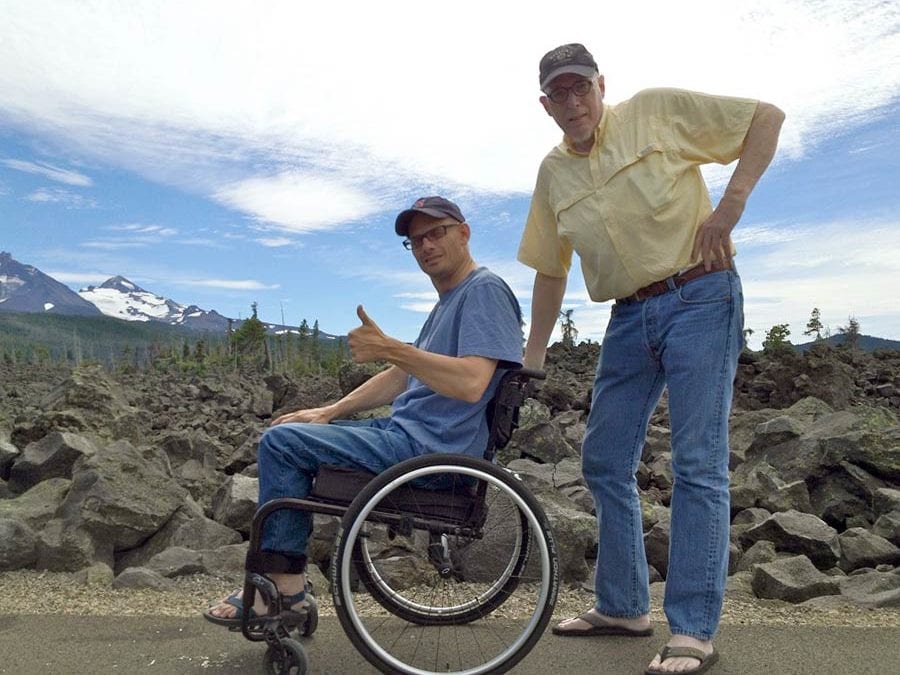Why is it so consistently and persistently hard for event staff, restaurant hosts, movie ushers, rental car agents and other front-line staffers to problem-solve when it comes to disability? Why do so many cite the rules or need to check with a supervisor? Why are those rules and supervisors so inflexible when adapting a situation to fit a particular need? Why are so few inclusive procedures and practices in play?
Not a day goes by when I don’t ask myself at least one of these questions.
I have grown accustomed to getting a blank stare upon requesting accommodations, most would be deal-breakers for any other patron or customer, like safe passage or functioning elevators or even workable chairs. I tend to use my doggedness and dead-pan humor to negotiate life’s challenges and opportunities. Someone once described me as equal parts determination and pragmatism. It’s a mix that works for most situations. I smile often. I nod. I empathize. I work to diffuse tense situations, but I do get tired of being the exception to the rule.
Following the rules has its place in society. I like rules as much as the next guy. However, most cars, parks, and buildings were not constructed with me or my wheels in mind. I’ve learned to assume problem-solving as a constant, a given. I do my homework before exploring new places. I anticipate issues. I check websites. I ask questions up front. I create a plan. Some days, I feel like I’m breaking the disability barrier. I can’t be the first; I’m definitely not the only.
Be my advocate, readers, and the advocate of millions of others like me. Locate the wheelchair accessible seats at the next concert you attend. Pay attention to how many venues block out a few seats in the last row only. Try to follow the handicap signs to negotiate a step-less entry into a building. Note if you get lost. Clock the time it takes to navigate. Make a reservation at a restaurant and inquire about accessible seating and large print menus. Believe me, someone you know will need these accommodations, maybe even you.
Back to front-line workers. I challenge businesses to be one proverbial step ahead of me, rather than four steps behind. Talk to your folks about how to handle a situation involving someone with mobility issues or low vision. Do some role-playing. Invite me to attend your next training event. I’ll even let you borrow my wheelchair. You can roll a mile in my wheels.


Very true Randy, I know that theatre planners think of ‘last row’ for people with disabilities and wheelchairs. Let us hope that all owners and managers “step up to the plate” with our disabled citizens and maybe ‘hit a home run’ with their changes.
Ya learn sonmhtieg new everyday. It’s true I guess!